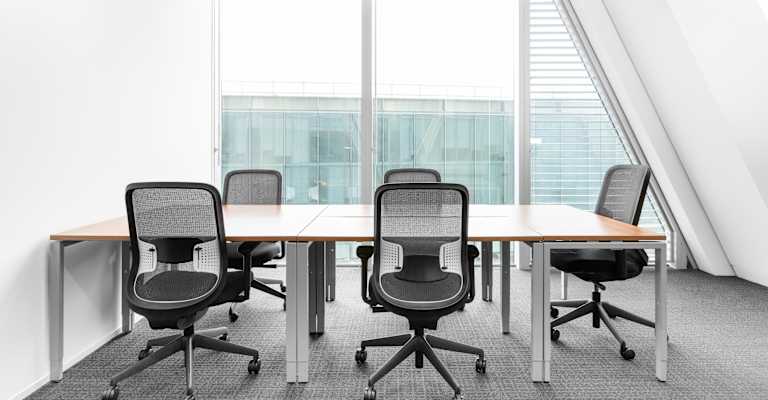There are many reasons why you might have a business meeting, from job interviews and staff appraisals to client meetings and investor presentations. However, the success of these meetings will all come down to the preparation you put in beforehand. Ensuring you have productive business meetings is imperative for success, especially if people have taken time out of their day to attend.
The last thing you want to do is waste hours in unproductive meetings.
In this article, we’ll show you how to prepare for a business meeting to make sure it’s as effective as possible.
Before your meeting
Spending time preparing for a meeting can mean the difference between a good and a bad one. Here are some of the steps you can take to effectively prepare yourself ahead of time.
Confirm the meeting
The first step in meeting preparation is to confirm when, where and how it’s being held. If you’re the meeting organiser, you’ll need to notify all attendees of its location, the time and date, alongside any other relevant information. You’ll also need to book a suitable meeting space that’s large enough to fit everyone in comfortably and has all the equipment you need. Confirmation of these details is often sent via email. This means attendees can then add the meeting to their calendars to make sure they don’t miss it.
You should also make sure you only invite the people who are really needed at the meeting to ensure it stays focused.
Understand the meeting purpose
All attendees should understand the purpose of the meeting before attending. This keeps everyone on the same page and that any questions can be answered ahead of time.
Another reason for understanding the meeting purpose is to ensure you are the most suitable attendee. Organisations with large teams might not always be fully aware of the responsibilities within different departments. This could mean you end up attending a meeting where another colleague could add more value. Understanding a meeting’s objectives ahead of time will help you to avoid this.
Review the agenda
A key part of meeting preparation is the agenda as it ensures all attendees stay focused throughout the time they are together. A clear, concise agenda generally leads to a more effective meeting. Therefore meeting leaders should speak with attendees beforehand to gather any ideas for what the business meeting’s agenda should include.
Reviewing the agenda ahead of time will ensure attendees can prepare any information that may be required and write down any questions in advance, avoiding the panic of searching through files and emails when the meeting begins!
Complete any required reading or research
Once you’ve got to grips with the agenda, you should complete any beneficial reading or research ahead of time. For example, if you’re attending a job interview, it’s good practice to research the company you are interviewing for and learn some facts about the business.
Set up equipment
As a meeting host, you will be responsible for getting any equipment you need ready. If you can, book your meeting room up to 30 minutes before everyone arrives so you can set everything up and check that any technology is working properly. If you’re presenting, for example, you should always do a quick run-through on any equipment you’ll be using to ensure your images load and your text can be seen clearly.
Best places for business meetings
When deciding on a location for your meeting, it’s important to think about its purpose and the meeting participants. For example, you could hold a meeting off-site if it involves creative thinking or team building. More formal team meetings might be best suited to a conference room or a breakout room within the main office.
If you’re a freelancer or small business without a large office to hold meetings in, you could choose to meet in a coffee shop or coworking space. Many serviced office spaces offer access to meeting rooms and lounges which can be booked in advance. With more businesses working remotely, there has also been a sharp increase in virtual meetings.
Once you’ve decided on your location, you should check it has the facilities you need. Most meeting spaces include free WiFi and tea and coffee making facilities, but some will charge extra for the use of technological equipment.
How to ensure effective business meetings
Your preparation will have gone a long way to ensuring your meeting gets off to a good start. However, it’s also important to make sure everyone stays on track when you’re all in the room.
One of the most common causes of unproductive meetings is off-topic conversation. Once you have an agenda, stick to it and keep reminding your team members of the meeting’s purpose to keep your meeting on time. You could also impose time limits on each section of the agenda to help you stay focused. Be careful though, as this can sometimes have a negative effect if people feel like their ideas are being rushed.
At the end of your meeting, you should run through everything you’ve discussed and form an action plan with key points to take away.
At Regus, we have a variety of different meeting rooms in many central locations, so you can conduct effective business meetings wherever you are in the world, even when travelling.
Our virtual office plus packages also offer access to meeting rooms when needed.
Book your meeting room in advance to ensure you’ve got plenty of time to prepare for your next important meeting.
